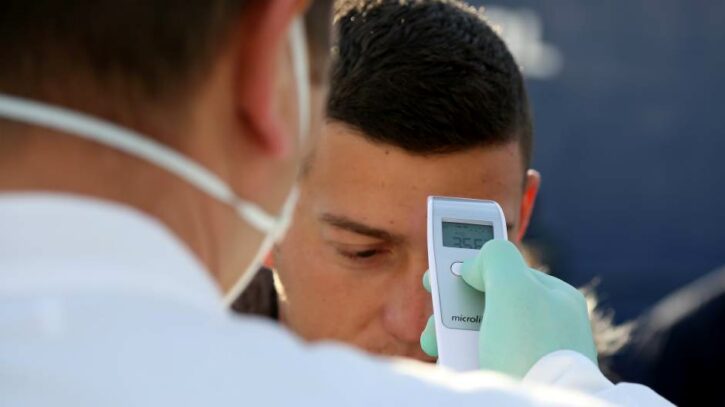
Two more cases of coronavirus infection have been confirmed in Croatia, the country's health authorities said on Friday morning. Health Minister, Vili Beros, told reporters that both new cases, separately identified in the cities of Zagreb and Rijeka, involve people close to the first three patients who had been quarantined earlier this week.
The country's first case was discovered on Tuesday in Zagreb, and involved a 25-year-old man who had returned from a trip to Milan the week before. Days later, his twin brother was also found to have been infected.
Both have shown mild symptoms of the disease and have been put in quarantine at the Fran Mihaljevic Hospital for Infectious Diseases in Zagreb, the country's premier institution for contagious diseases.
The third case was confirmed on Wednesday in a man who had recently returned from work abroad, from the northern Italian city of Parma. He was placed in quarantine at the Rijeka hospital the same day.
Beros told reporters that two new cases confirmed on Friday involve a younger man in Zagreb and a middle-aged man in Rijeka, both of whom had been in close contact with previously detected patients. Both have been put in quarantine at hospitals in their respective cities and they are both feeling well.
“The (fourth case) tested mildly positive. The fifth case is a household member of the man previously diagnosed in Rijeka. They are both feeling well, and there are no problems as far as their health status is concerned, which means these seem to be household infections, requiring close and frequent contacts with diseased persons for people to get infected, like for example family members or members of a close-knit community,” said head of the Fran Mihaljevic Hospital, Alemka Markotic.
Markotic added that eight more suspected cases are currently tested for possible coronavirus infection.
The two new cases come from a group of 68 people who were identified by authorities as having been in close contact with already diagnosed patients and who had been put into isolation for precaution and testing.
‘Situation is under control’
On Thursday, Prime Minister Andrej Plenkovic appealed for calm in a news conference, after local media reported that panicked shoppers had invaded some supermarkets in Zagreb to stock up on supplies fearing a massive outbreak in the coming days.
“The public health situation is under control… I appeal to citizens, there is no reason for stocking up on supplies and emptying store shelves… Please remain calm and responsible,” Plenkovic said in a cabinet meeting.
Earlier this week, Croatia's Health Minister, Vili Beros, attended a meeting in Rome hosted by Italy's Health Minister, Roberto Speranza, with their counterparts from France, Switzerland, Slovenia, and Austria. The health authorities of these six countries agreed that they would coordinate containment measures and protocols but stopped short from ordering border closures.
Since the outbreak started in China in December, there have been close to 84,000 confirmed cases of infection worldwide as of Friday, including more than 2,800 deaths from the disease.
In Europe, the hardest hit country by far is Italy, which by Friday morning reported 655 confirmed cases and 17 deaths. The majority of cases were located in the northern part of the country, in the regions of Lombardy and Veneto, and most deaths were in elderly patients whose immune system had been compromised due to pre-existing health problems.
Croatia's foreign ministry had issued a travel advisory earlier this week, recommending caution when travelling to northern Italy, and the country's education ministry ordered all state-run elementary and middle schools to cancel school trips to Italy for at least a month.
Shares tumble in Croatia and beyond
Croatia's chamber of commerce HGK issued a press release on Wednesday saying that a prolonged crisis might have serious knock-on effects for the country's export businesses. Italy is one of Croatia's closest neighbours and a major trading partner, accounting for some 15 percent of all of Croatia's exports, worth some €2 billion.
The country's large tourist industry could also suffer, as some 200,000 Italians who traditionally spend their summer holidays on Croatia's side of the Adriatic are an important source of income for seaside towns in Istria and Dalmatia.
On Monday, the Zagreb Stock Exchange had recorded the largest single-day fall since August 2011, with Zagreb index Crobex tumbling 4.9 percent which translated to an incredible 5.8 billion kuna (€780 million) loss of the value of shares listed.
Fears that the fast spread of the outbreak could slow down economic growth also caused stock markets in London, Frankfurt, and Paris to fall by more than 3 percent early on Friday, only a day after American markets recorded their largest single-day drop in almost a decade on Thursday.
This is an ongoing story and will be updated as more information becomes available.




